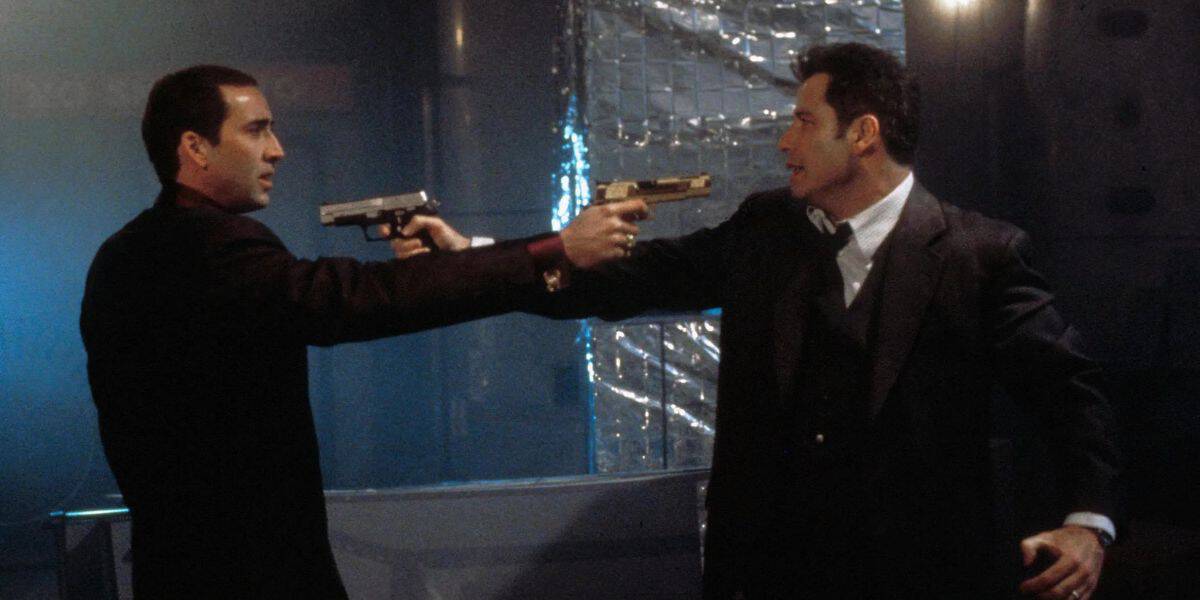It looks like Paramount will no longer be the same movie studio mogul that many of us know it to be in a landscape where competing studios are icing out the competition.

Paramount Pictures, a name synonymous with Hollywood glamour, boasts a history as enduring as the celluloid it once dominated. Founded in 1914 by Adolph Zukor, the company began as a film distributor, quickly rising to prominence by merging with production companies like Famous Players-Lasky. This move not only secured a steady stream of content but also introduced audiences to rising stars like Rudolph Valentino and Gloria Swanson.
The studio’s golden age flourished throughout the mid-20th century, churning out classics that cemented its place in cinematic history. From the epic spectacle of Cecil B. DeMille’s The Ten Commandments to the raw power of Marlon Brando in The Godfather, Paramount consistently delivered films that captivated audiences and garnered critical acclaim.
Most recently, it was announced that Paramount would be merging with Skydance Media, which was established in 2010 to strengthen its position against other production giants like Disney, Netflix, Universal, Amazon, and more. The merger appears necessary.

In its most recent quarter, Paramount reported an operating loss of $417 million on revenue of $7.6 billion, compared with a loss of $1.2 billion on revenue of $7.2 billion in the year-ago period.
Paramount Global parent National Amusements and Skydance Media have agreed to merge less than a month after the sides abruptly ended deal talks.
Paramount, owner of Paramount Pictures movie and television studios, the CBS television network and CBS News, announced in a news release late Sunday that it is combining with Skydance, an entertainment business founded by David Ellison, son of Oracle founder Larry Ellison. Paramount also owns the Paramount+ streaming service, Nickelodeon, BET, MTV, Comedy Central and other media brands.
The transaction resolves months of speculation around the future of Paramount, which also reportedly attracted a $26 billion bid from a consortium including Sony Pictures and private equity firm Apollo Global Management. A range of prominent media and entertainment industry executives were also said to have expressed interest in a possible deal for Paramount.

“This is a defining and transformative time for our industry and the storytellers, content creators and financial stakeholders who are invested in the Paramount legacy and the longevity of the entertainment economy,” Ellison said in a statement.
“I am incredibly grateful to Shari Redstone and her family who have agreed to entrust us with the opportunity to lead Paramount. We are committed to energizing the business and bolstering Paramount with contemporary technology, new leadership and a creative discipline that aims to enrich generations to come.”
Ellison will serve as chairman and CEO of Paramount, and Jeff Shell, chairman of RedBird Sports and Media, a unit of investment firm RedBird Capital Partners, will become president. Shell is the former CEO of NBCUniversal.
Financially, Paramount has always been a force to be reckoned with, in a sense. While the exact figure for its current worth isn’t publicly available, a recent merger with Skydance Media, a production company known for films like Top Gun: Maverick and Mission: Impossible – Fallout, valued the combined entity at a staggering $28 billion.
This hefty price tag reflects the studio’s enduring brand recognition and its vast library of intellectual property.
Speaking of that library, Paramount boasts a filmography that reads like a who’s who of Hollywood history. From the screwball comedies of the 1930s like Bringing Up Baby to the heart-wrenching romance of Breakfast at Tiffany’s, the studio has consistently produced crowd-pleasers across genres.
Action aficionados can point to the adrenaline-pumping Mission: Impossible franchise, while animation enthusiasts can celebrate classics like Rugrats and SpongeBob SquarePants. Paramount’s ability to deliver both critically acclaimed hits and popcorn entertainment has solidified its place as a box office powerhouse.

However, the winds of change are sweeping through Hollywood.
The rise of streaming giants like Netflix and Disney+ has fundamentally altered how audiences consume content. Recognizing this shift, Paramount launched its own streaming service, Paramount+, in 2014.
While not currently on the same subscriber level as its competitors, Paramount+ offers a growing library of original content and classic films. Shows like Yellowstone and Star Trek: Discovery have garnered critical praise, while the addition of ViacomCBS content like Avatar: The Last Airbender broadens the platform’s appeal.
Paramount’s position in the streaming wars is one of cautious optimism. The studio faces fierce competition from established players with deeper pockets and larger content libraries. Yet, the recent merger with Skydance injects fresh resources and the potential for blockbuster content. This move, coupled with continued investment in Paramount+, suggests a proactive approach to navigating the new media landscape.
Unfortunately, Paramount+ has also canceled and cut a lot of iconic and beloved shows from its streaming platform.
Overall, Paramount Pictures finds itself at a crossroads. Its legacy is undeniable, boasting a treasure trove of iconic films and a brand synonymous with Hollywood magic. However, the future lies in adapting to a streaming-driven entertainment industry. With a strategic merger and a growing streaming platform, Paramount is poised to write the next chapter in its storied history.

Whether it can reclaim its past dominance or carve a new path in the streaming age remains to be seen, but one thing is certain: Paramount Pictures is a force to be reckoned with for years to come. Regardless, just like any merger, when a company merges with another, the original and initial company then ceases to exist in that state as changes have been made.
Therefore, Paramount, as we know it, is no longer operational in its original form, but has taken on a new form, with the Skydance merger.
How do you feel about the latest Paramount merger?
